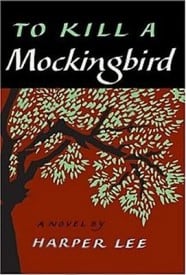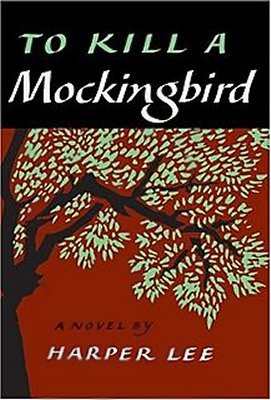
Center REPertory Company announced it will present To Kill a Mockingbird, from April 1st through April 30th, 2011. Directed by Michael Butler, the show is the sixth production of the REP’s 44th subscription season.
“I pretty much cut a different figure than Gregory Peck,” explains Dan Hiatt at the outset, making it clear he’s not going to imitate the Academy Award-winning star as he takes on the role of Atticus Finch in “To Kill a Mockingbird.”
For one thing, it’s a stage adaptation of Harper Lee’s novel in which Hiatt is appearing for Center REPertory Company, not a star-powered Hollywood production. But Atticus was also named the greatest hero in the history of American movies by the American Film Institute. And librarians have voted Harper Lee’s original work the best American novel of the 20th century. Hiatt, a veteran Bay Area actor, may be challenged but not intimidated to play a role considered so heroic. He’s returning to Lee’s original, 1960 novel, to help create a more detailed, maybe more subtle character.
“I’m not even sure Atticus is really the central character of the story,” Hiatt says. “It’s all from the point of view of Scout, his daughter. It’s a powerful story, with important things to say about the history of race relations in this country. But it’s also a very sweet coming-of-age tale.”
Hiatt, who has performed with the American Conservatory Theatre, California Shakespeare Theatre and Berkeley Rep, is digging into the book to find the man behind the heroic image. The play adapted by Christopher Sergel, of course, follows the basic story of a white attorney who defends a black man, Tom Robbins, unjustly accused of rape. “Atticus isn’t a saint, or a hero, or whatever you might want to call him,” Hiatt says. “You definitely want to see the flaws, the humanity. I think it comes out pretty well in the book. He’s not wild about defending Tom Robbins. It’s his code of ethics and honor that demand that he take on the job.”
As he re-read the book, Hiatt was struck “with how much Atticus seems kind of wounded.” It’s between the lines of Lee’s novel, the adult perspective beneath Scout’s point of view. “He lost his wife about four years before the story starts, and he’s trying to keep everything going for his family during the Depression. And he feels like an outsider in his own community to a certain extent.”
There’s no denying that Hiatt loved the Gregory Peck movie, but he’s staying away from that “indelible” performance for his own interpretation.
“There’s a way in which you might want to see more of Atticus’ frustration. He’s not a man who’s a broad-shouldered pillar of the community from the beginning.”


